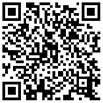| [1] |
DUAN Li-Min
, WU He-Yu
, JIN Gen-Ming
, WANG Su-Fang
, LI Zu-Yu
, WEI Zhi-Yong
, ZHANG Bao-Guo
, WANG Hong-Wei
, XIAO Zhi-Gang
, LIU Yong-Ying
, HU Pei-Gang
, LU Zhao-Hui
, TIAN Wen-Dong
, GOU Quan-Bu
. Excitation Energy and Temperature of Compound Nuclei in the Reaction of 35MeV/u 40Ar+197Au. Chinese Physics C,
2003, 27(2): 118-123. |
| [2] |
WANG Jin-Chuan
, ZHAN Wen-Long
, GUO Zhong-Yan
, XI Hong-Fei
, ZHOU Jian-Qun
, ZHAO You-Xiong
. Azimuthal Correlations of Fragments with Light Charged Particles in Reaction of 25MeV/u 40Ar+115In. Chinese Physics C,
2001, 25(1): 16-22. |
| [3] |
WANG Jin-Chuan
, ZHAN Wen-Long
, GUO Zhong-Yan
, XI Hong-Fei
, ZHOU Jian-Qun
, ZHAO You-Xiong
. Energy Correlations between Fragments and Light Charged Particles in Reaction of 25MeV/u 40Ar+115In. Chinese Physics C,
2001, 25(2): 115-120. |
| [4] |
WEI Zhi-Yong
, DUAN Li-Min
, JIN Gen-Ming
, WU He-Yu
, LI Zu-Yu
, SHEN Wen-Qing
, XI Hong-Fei
, ZHU Yong-Tai
, ZHANG Bao-Guo
, WANG Hong-Wei
, XIAO Zhi-Gang
, LIU Yong-Ying
,
,
. Freeze-Out Density of the 35MeV/u 40Ar+197Au Reaction. Chinese Physics C,
2001, 25(9): 839-844. |
| [5] |
WEI ZhiYong
, LI ZuYu
, LIU YongYing
, DUAN LiMin
, WU HeYu
, ZHANG BaoGuo
, WANG HongWei
, WANG SuFang
, XIAO ZhiGang
, LU ZhaoHui
, JIN GenMing
, ZHU YongTai
, HU RongJiang
, ZHU HaiDong
. Statistical Emission of Hot Nuclei in the 35MeV/u 40Ar+197Au Nuclear Reaction. Chinese Physics C,
2000, 24(12): 1131-1136. |
| [6] |
Zheng Jiwen
, Wu Enjiu
, Zhang Chun
, Xiao Zhigang
, Wang Sufang
, Yin Shuzhi
, Jin Genming
, Tan Jilian
, Jin Weiyang
, Song Mingtao
, Li Zuyu
, Wu Heyu
, He Zhiyong
, Yin Xu
, Peng Xinping
, Jiang Dengxing
, Qian Xing
. Measurement of Fission Time Scale and Excitation Energy at Scission for 25MeV/u 40Ar+209Bi Fission Reaction. Chinese Physics C,
1999, 23(10): 946-953. |
| [7] |
Zheng Jiwen
, Wu Enjiu
, Xiao Zhigang
, Zhang Chun
, Yin Shuzhi
, Wang Sufang
, Jin Genming
, Tan Jilian
, Jin Weiyang
, Song Mingtao
, Li Zuyu
, Wu Heyu
, He Zhiyong
, Yin Xu
, Peng Xinping
, Jiang Dongxing
, Qian Xing
. Investigation of Fission Properties in the Reaction 25MeV/u 40Ar+209Bi. Chinese Physics C,
1999, 23(5): 409-416. |
| [8] |
Lin Yuangen
, Zhan Wenlong
, Guo Zhongyan
, Zhou Jianqun
, Zhao Youxiong
, Liu Guanhua
, Wang Jinchuan
, Luo Yongfeng
, Lei Huaihong
, Qi Zhong
, Zhang Wansheng
, Qin Lijun
. Study of Isotopic Distributions of the Fragments from the 25MeV/u 40Ar Induced Reactions. Chinese Physics C,
1998, 22(5): 393-397. |
| [9] |
Zhang Baoguo
, Wang Sufang
, Duan Limin
, Wen Wanxin
, Jin Genming
, Zheng Jiwen
, Li Zuyu
, He Zhiyong
, Xiao Zhigang
, Wang Hongwei
. The Study of Giant Dipole Resonance in Hot Nuclei in the 40Ar+93Nb Reaction at 25MeV/u. Chinese Physics C,
1998, 22(9): 795-802. |
| [10] |
Duan Limin
, Wang Sufang
, Zhang Baoguo
, Wen Wanxin
, Jin Genming
, Zheng Jiwen
, He Zhiyong
, Li Zuyu
, Tan Jilian
, Xiao Zhigang
, Wang Hongwei
, WU Heyu
. Excitation Energy and Temperature of Hot Nucleiin the Reaction of 25 MeV/u 40Ar+93Nb. Chinese Physics C,
1998, 22(9): 780-786. |
| [11] |
Yin Shuzhi
, Jin Weiyang
, Zhang Chun
, Jin Genming
, Zheng Jiwen
, Wu Enjiu
, Tan Jilian
, Li Zuyu
, Wang Sufang
, Song Mingtao
, Wu Heyu
, He Zhiyong
, Jiang Dongxing
, Qian Xing
. Temperatures and Excitation Energies of Hot Nuclei in Reactions of 40Ar+natAg,209Bi at MeV/u. Chinese Physics C,
1997, 21(8): 680-685. |
| [12] |
He Zhiyong
, Duan Limin
, Li Zuyu
, Jin Genming
, Luo Qingzheng
, Wu Heyu
, Zhang Baoguo
, Wen Wanxin
, Qi Yujin
, Dang Bingrong
, Dai Guangxi
. Emission-Time Measurements of Light Particles from 40Ar+197Au Collisions in Intermediate Energies. Chinese Physics C,
1996, 20(S1): 3-7. |
| [13] |
He Zhiyong
, Duan Limin
, Li Zuyu
, Jin Genming
, Luo Qingzheng
, Wu Heyu
, Zhang Baoguo
, Wen Wanxin
, Qi Yujin
, Dang Bingrong
, Dai Guangxi
. Emission Time Measurements of Light Particles from 40Ar+197Au Collisions in Intermediate Energies. Chinese Physics C,
1996, 20(1): 8-12. |
| [14] |
Qian Xing
, Jiang Dongxing
, Qian Tao
, Hua Hui
, Lin Junsong
, Wu Enjiu
, Zheng Jiwen
, Jin Genming
, Yin Shuzhi
, Tan Jilian
, Jin Weiyang
, Song Mingtao
, Li Zuyu
, He zhiyong
, Wang Sufang
. Evaporation of Intermediate-Mass Fragments From Hot-Nuclei in Reaction 40Ar+159Tb at 25MeV/u. Chinese Physics C,
1996, 20(4): 304-310. |
| [15] |
He Zhiyong
, Li Zuyu
, Duan Limin
, Jin Genming
, Wu Heyu
, Dai Guangxi
, Li Zhankui
, Zhang Baoguo
, Wen Wanxin
, Qi Yujin
. In-plane and Out-of-plane Emission of Light Charged Particle from 40Ar+197Au Collisions at 25 MeV/u. Chinese Physics C,
1996, 20(S2): 129-134. |
| [16] |
He Zhiyong
, Li Zuyu
, Duan Limin
, Jin Genming
, Wu Heyu
, Dai Guangxi
, Li Zhankui
, Zhang Baoguo
, Wen Wanxin
, Qi Yujin
. In-Plane and Out-of-Plane Emission of Light Charged Particles From 40Ar+197Au Collisions at 25MeV/u. Chinese Physics C,
1996, 20(5): 394-399. |
| [17] |
Liu Guoxing
, Cheng Keliang
, Yu Xian
, Zheng Jiwen
, Jin Weiyang
, Sun Tongyu
, Wu Dingqing
, Zhao Lili
, Zhang Xiang
, Yin Xinmin
, Qin Zhi
. Fragment Angular Distributions of the 600 MeV 40)Ar+197 Au Reaction. Chinese Physics C,
1995, 19(4): 305-309. |
| [18] |
Duan Limin
, Li Zuyu
, Jin Genming
, He Zhiyong
, Luo Qingzheng
, Wu Heyu
, Zhang Baoguo
, Qi Yujin
, Wen Wanxin
, Dang Bingrong
, Dai Guangxi
. Relative Population of States and Extraction of Emission Temperature in 25 MeV/u 40Ar+197Au. Chinese Physics C,
1995, 19(S3): 215-220. |
| [19] |
Duan Limin
, Li Zuyu
, Jin Genming
, He Zhiyong
, Luo Qingzheng
, Wu Heyu
, Zhang Baoguo
, Qi Yujin
, Wen Wanxin
, Dang Bingrong
, Dai Guangxi
. Relative Population of State and Extraction of Emission Temperature in 25MeV/u 40Ar+197Au. Chinese Physics C,
1995, 19(5): 393-397. |
| [20] |
Dai Guangxi
, Wu Heyu
, Jin Genming
, Qi Yujin
, Li Zuyu
, Duan Limin
, He Zhiyong
, Luo Qingzeng
, Wen Wanxin
, Zhang Baoguo
, Dang Bingrong
, Cai Wei
. Ternary Fission Fragments Correlation Measurement in Reactions of 40Ar+159Tb,197Au,209Bi at 25MeV/u. Chinese Physics C,
1994, 18(S1): 20-27. |





 Abstract
Abstract HTML
HTML Reference
Reference Related
Related PDF
PDF













 DownLoad:
DownLoad: